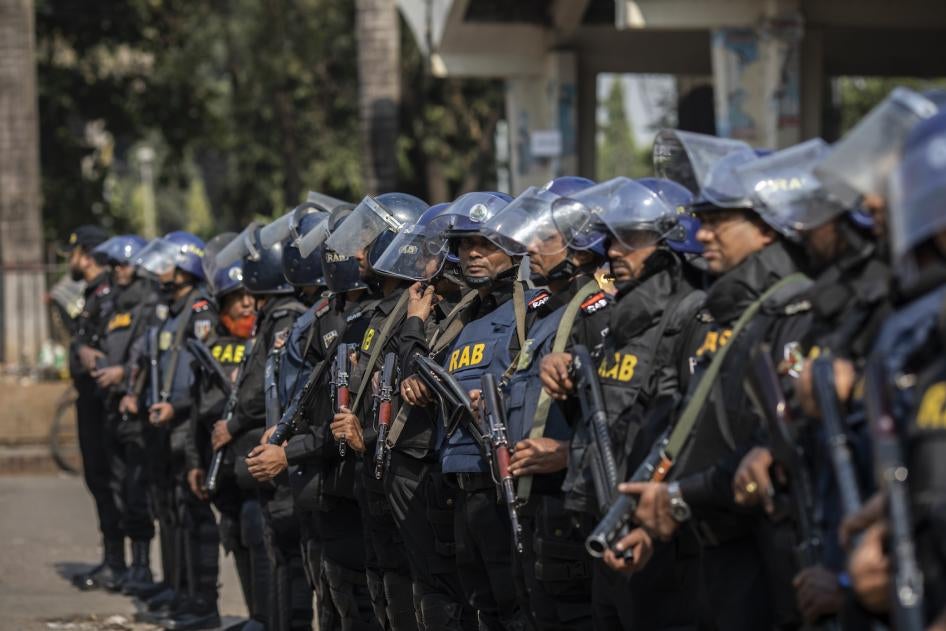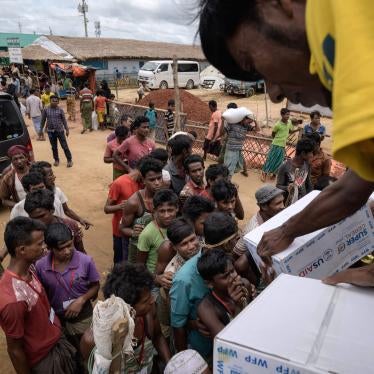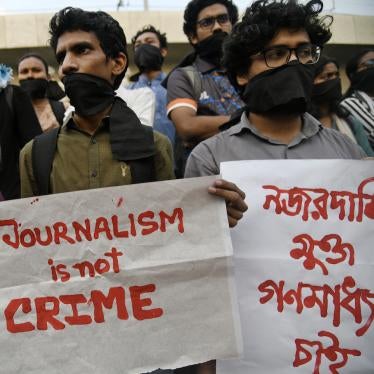United Nations Under-Secretary-General Jean-Pierre Lacroix should publicly voice concerns over abuses by government security forces during his upcoming visit to Bangladesh. His trip comes as Bangladesh security forces are cracking down on the political opposition, targeting activists and families of victims of enforced disappearances, and harassing Rohingya refugees.
Bangladesh security forces – in particular, the Rapid Action Battalion (RAB), a unit made up of seconded military and police officials – have long been implicated in serious human rights violations.
Lacroix should emphasize that if Bangladesh is to maintain its role as the top contributor of peacekeeping troops, it should appropriately apply the UN human rights screening policy, which requires governments, alongside the UN, to ensure their nationals serving with the UN have not violated human rights laws.
However, as it’s currently being implemented, this policy fails to ensure Bangladeshi troops that have engaged in abuses at home are not deployed with UN missions abroad. In Bangladesh, systematic human rights screening by the UN is applied only at higher ranks and otherwise left to the National Human Rights Commission, which has limited purview over security forces.
Bangladesh’s weak enforcement of this policy reinforces a message that grave rights violations will not preclude one from service under the UN flag, presenting a moral hazard for the UN.
When reviewing Bangladesh’s record in 2019, the UN Committee against Torture stated that it is “concerned at reports that personnel that have served with the Rapid Action Battalion have frequently been deployed for service with United Nations peace missions.” It recommended an independent vetting procedure, “to ensure that no person or unit implicated in the commission of torture, extrajudicial killing, disappearances or other serious human rights violations is selected for service.”
The UN should require Bangladeshi officers to disclose previous deployments with RAB, then automatically bar anyone affiliated with RAB from UN peacekeeping. The UN Department of Peace Operations should ensure adequate resources for human rights screening of all Bangladeshi troops, not just high-level commanders.
Lacroix has yet to formally respond to previous communications from human rights organizations calling for the Department of Peace Operations to enhance the human rights screening process for Bangladeshi peacekeepers, and to ban from UN deployment anyone affiliated with RAB.
During his visit, Lacroix should publicly commit to an enhanced human rights screening that addresses well-documented abuses by Bangladesh security forces, the government’s failure to hold those responsible to account, and the threat they pose to the integrity of UN peacekeeping worldwide.










